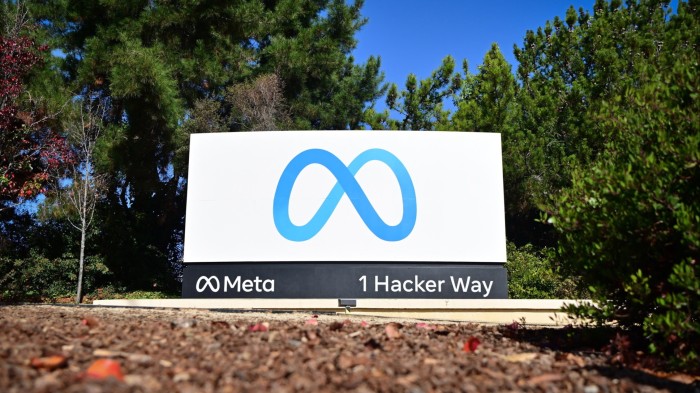Unlock the Editor’s Digest for free
Roula Khalaf, Editor of the FT, selects her favourite stories in this weekly newsletter.
Meta plans to invest about $15bn in data-labelling start-up Scale AI and hire the group’s co-founder and top researchers, in one of the biggest deals of its kind as the Big Tech company seeks to catch up with rivals.
The deal, which could be announced as soon as Wednesday, would give Meta a 49 per cent stake in Scale AI and value the start-up at roughly $28bn, according to people with knowledge of the matter.
The investment in Scale and attempt to poach its top talent is part of Meta’s plan to build a “superintelligence” lab that will outperform OpenAI, Anthropic and Google, which are also developing models they claim will exceed human intelligence, according to one of the people.
Scale declined to comment, and Meta did not respond to a request for comment.
The launch of Meta’s latest large language model, Llama 4, was widely seen as a failure after it underperformed on important reasoning and coding benchmarks.
Meanwhile, competitors such as Google, OpenAI and Anthropic have each unveiled a new generation of powerful “reasoning” models, which solve problems by breaking them down step by step. Meta is also facing pressure from open source competitors such as China’s DeepSeek that have built powerful models for a fraction of the cost.
Meta, with a market capitalisation of nearly $2tn, has invested heavily in generative AI. But progress has been halting and chief executive Mark Zuckerberg has reorganised the efforts multiple times. Meta announced in April the departure of Joelle Pineau, vice-president of AI research.
Alexandr Wang, a 28-year-old paper billionaire who co-founded Scale in 2016, is set to join Meta’s “superintelligence” lab, the details of which were first reported by The New York Times. Details of Meta’s investment were first reported by Bloomberg and The Information.
Scale’s core business involves manually labelling the data that is used to train advanced AI models to ensure it is accurate.
Wang has forged relationships with Silicon Valley’s biggest investors and technologists, including OpenAI’s Sam Altman, and has positioned Scale to serve companies developing autonomous vehicles and more recently those building generative AI models.
But his talents lie in promoting the company rather than managing its staff or furthering AI research, according to multiple people who have worked with him.
Jason Droege, who joined Scale from Uber Eats less than a year ago, is expected to step up from chief strategy officer to chief executive, according to a person with knowledge of the matter.
The fate of Scale’s remaining employees is less clear. Wang recently spoke about his desire to take Scale public, but the potential deal with Meta casts uncertainty over that goal.
Scale has been attempting to broaden its revenue sources following investor concern about its concentrated services, according to one person with knowledge of the matter. The group has increasingly focused on building custom applications for enterprises and bidding for government contracts.
Last year, Microsoft paid $650mn to hire Inflection boss Mustafa Suleyman and his top lieutenants, and to license the start-up’s technology. Google also paid $2.7bn for a similar arrangement with Character AI.
The bespoke structures used by the Big Tech groups are partly designed to avoid probes from regulators, according to people with knowledge of the deals. But both Google and Microsoft have nonetheless faced scrutiny from antitrust enforcers.
Additional reporting by Hannah Murphy




